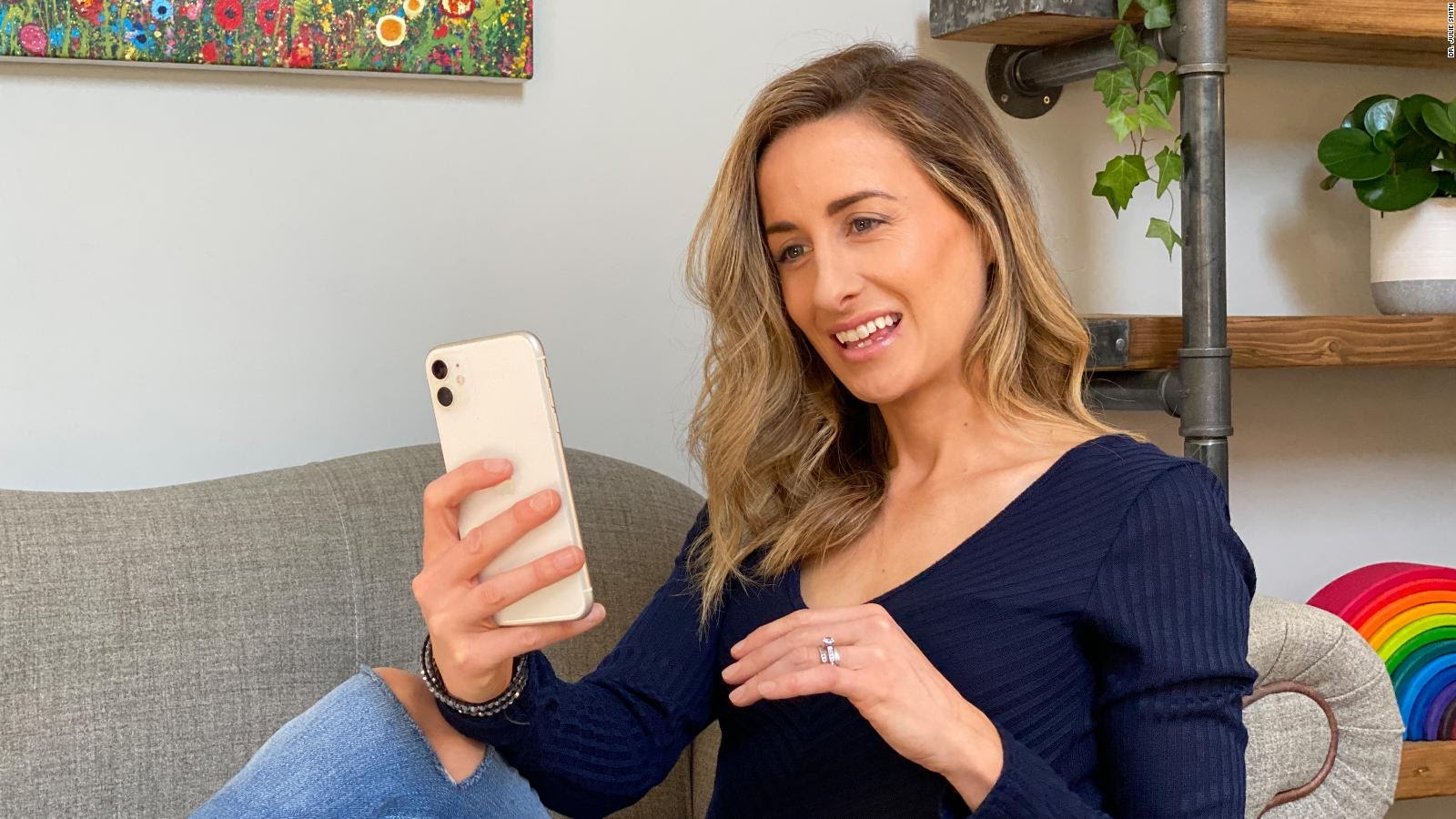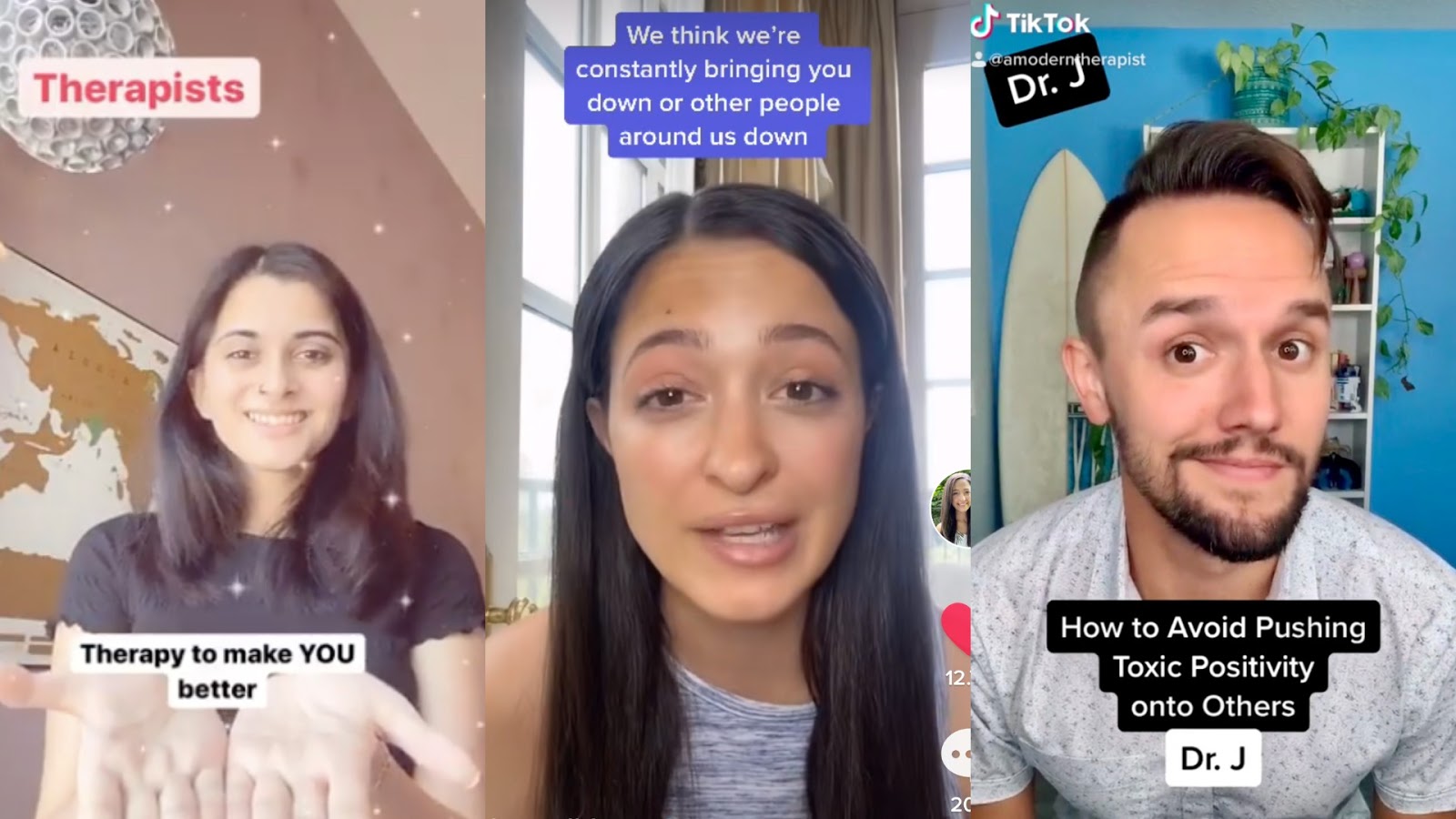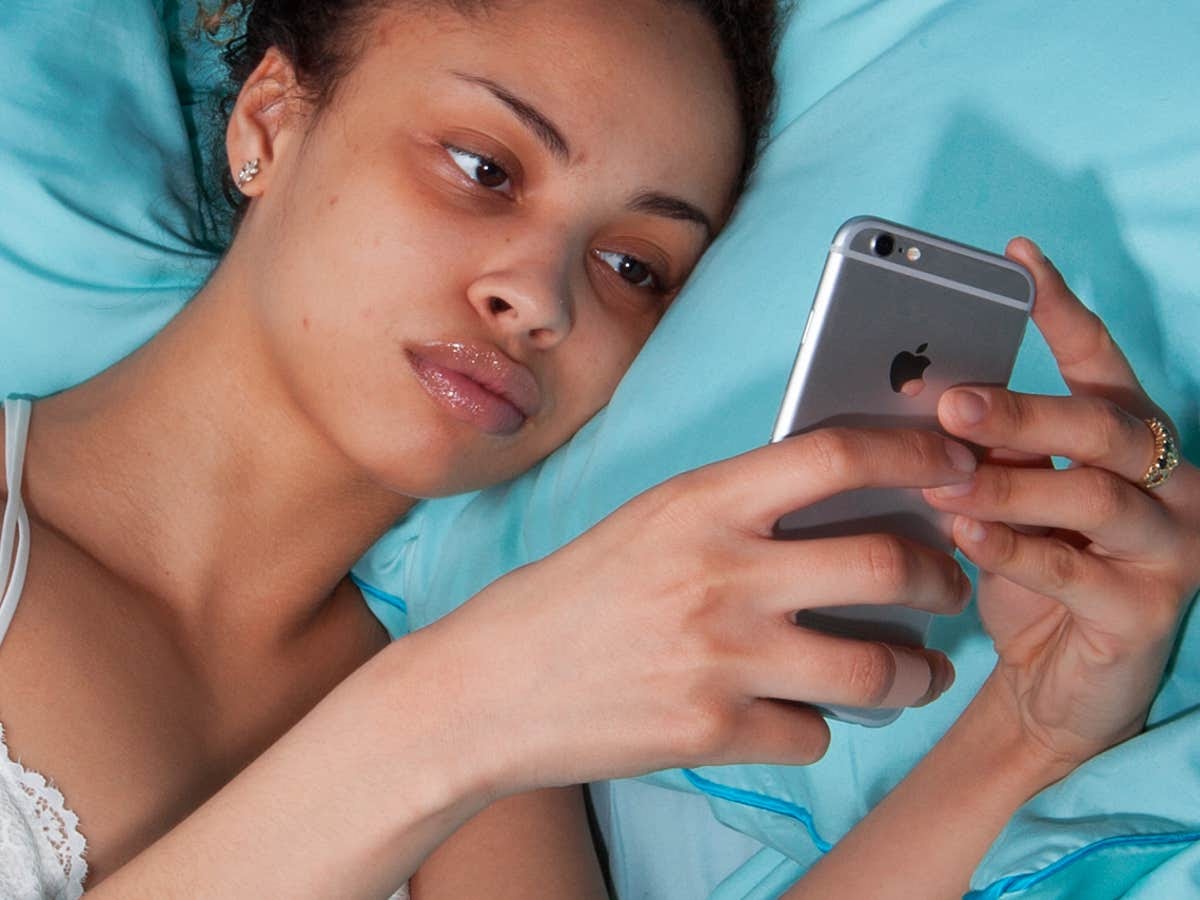With about 80 million active monthly users, TikTok, a platform where people make and share videos up to 60 seconds long, has become an extremely popular social media app amongst Gen Zers and Millennials.
From teenagers performing synchronous dances to dogs riding skateboards, there’s a space for just about anything to be shared with the world via TikTok. Recently, licensed psychologists have begun sharing information about mental health, creating a corner of the app where users can go to seek advice if they are struggling or to learn about the topic in general.
TikTok’s emergence into mainstream culture is fairly new–it wasn’t until 2018 when the app started to garner a significant amount of attention. Still, #tiktoktherapist has over 321 million meaning professional advice on mental health content is a hot topic users are looking for when they scroll through app.
Like most social media apps, TikTok feed is a form of recreation, but videos informing the public about how to better manage their mental health can have several more serious benefits. Still, with the app’s use of algorithms and DIY format that allows anyone and everyone to become the next biggest “influencer,” there are certainly things to be cautious of.
What’s with all these therapists on TikTok?

While TikTok therapy is certainly prevalent, it’s not that recent. The trend began after psychologist Dr. Julie Smith joined the app in November of 2019 posting videos explaining therapy concepts as well as information about anxiety and depression. Since then, plenty of licensed therapists like Dr. Courtney Tracy and Micheline Maalouf have joined the app as well. While some choose to take a more serious approach, others, like Lindsay Fleming, who often incorporates dancing to upbeat music or role playing in her videos, provide a more light hearted take to make serious topics easier to discuss.
Yes, there are some benefits to TikTok Therapy

A dose of reality
Unlike more highly curated apps like Instagram or Facebook, TikTok gives viewers an unfiltered look into the lives of others. This creates a space to discuss topics generally considered taboo to talk about, like struggles with mental health. There’s no doubt that social media tends to reinforce only the positive aspects of a person’s life, which can contribute to a negative self image, especially for teenagers who rely heavily on social media apps heavily throughout their day to day life. TikTok, while still a social media app, tends to avoid these issues when users discuss their mental health openly.
A new way to visualize the same concepts
TikTok fosters the production of very visual content, allowing abstract or bland concepts to be presented to an audience in a new way. One of Dr. Smith’s most popular videos on TikTok includes a demonstration showing the number of mental health struggles in society by using different colors of rice and mixing them into a pile. While it may seem like those struggling with their mental health are alone, Dr. Smith’s demonstration helps viewers visualize the idea that they likely have friends, family, and coworkers also dealing with mental health issues. This is a concept that has been stated over and over again, but being able to see it allows people to process it differently.
Accessibility
One of the most prominent advantages to TikTok Therapy is its accessibility to everyone able to download the app. Some people struggling with their mental health may not have the financial resources to seek professional help. Others, depending on the environment they live in and the people they socialize with, may not realize they are struggling with a mental health problem. TikTok therapy preaches mental health awareness to those unable to access it otherwise.
But there are things to be wary of as well

Therapy echo chambers
Like most social media apps, TikTok relies on an algorithm to show its users content they would likely be interested in based on their previous clicks. This can be an issue when looking for mental health advice on the app, as the algorithm will show the user more content related to the topic, even if they don’t want to see it. Information about mental health can be helpful when sought after, but being unable to catch a break from it can be very overwhelming and contribute to an already existing mental health struggle.
The limits of TikTok advice
It’s crucial to remember that the mental health advice from therapists on TikTok will not solve mental health illnesses nor will it replace actual sit-down therapy. Some videos provide insight about things to keep in mind when dealing with anxiety, but they won’t be able to replace the individualized help you can receive by talking out your emotions and feelings with your own therapist. While 60 second TikTok videos can list out the symptoms of OCD or anxiety, they can’t provide you with an official diagnosis. If watching TikTok therapy makes you concerned about your own mental health, reach out to a professional you can talk with to receive help.
Misinformation
Like most social media apps, TikTok is not impervious to misinformation. While many therapists who use TikTok as an outlet to share information to help people with their mental health claim they are licensed therapists, be wary of taking advice from strangers. Even if a therapist is certified, keep in mind that they are giving advice to thousands of people, not all of which may be applicable to your situation.
While TikTok therapy can be an effective tool when it comes to educating the public about various mental health illnesses and techniques used in counseling, be sure to take caution before getting completely wrapped up in hours of endless scrolling. TikTok can be the first step to recognizing a mental health struggle, but it can’t replace the benefits and importance of personalized one-on-one sit down therapy. If you think you are struggling with your mental health, reach out to a professional who can offer a diagnosis and individualized treatment.
